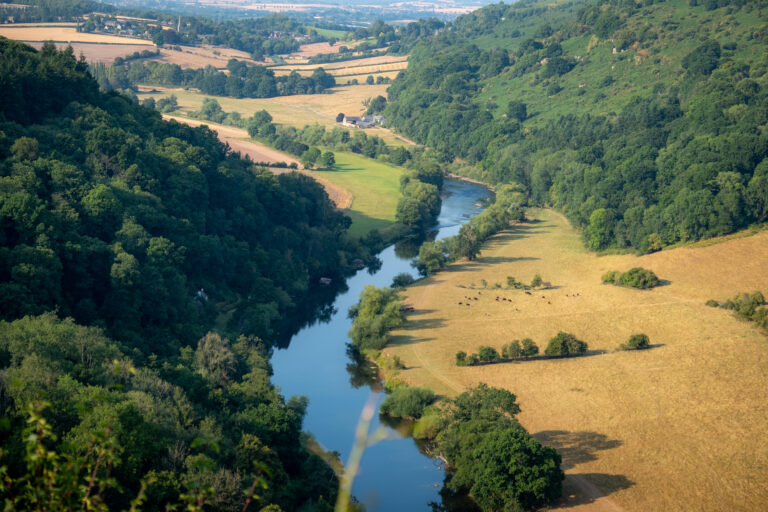A new scientific study has concluded that free-range egg production units do not appear to have significantly affected the quality of water in the River Wye and Usk catchment areas.
The causes of pollution of the Rivers Wye and Usk has been an ongoing debate for some years. In the early stages it was alleged that nutrient run-off from free-range egg production units in the Wye and Usk catchment areas was a major contributor to the deterioration of the river water quality.
In response to these allegations, and to address the lack of scientific evidence and better understand what impact free range may be having on river water quality and thereby what steps might be taken to ameliorate the problem, the British Egg Industry Council commissioned ADAS to undertake a scientific study of soil and water quality directly associated with free-range egg production units within the Wye and Usk catchment areas.
ADAS undertook sampling from a number of designated farms, based on their location, topography and history. Soil samples were collected from around the range area, and these were aggregated into a single composite sample for testing.
A ‘control’ soil sample was also collected from nearby land that was not grazed by animals or in receipt of manures or fertiliser. Upstream and downstream water samples were collected as close as possible to the range land.
ADAS concluded that the increase in nutrient levels in soils on the range land was relatively modest and broadly as expected of managed agricultural soils in England and Wales. Neither the soil samples nor the water samples showed any obvious indication of a link between water quality and range areas.
The report states: “In total, the results do not appear to show that the range land of the majority of the units studied had any significant direct impact on the quality of the watercourses sampled.”
It continues: “The units sampled were selected as being potentially higher-risk sites, and in theory should present an increased likelihood of issues than a random selection of farms. Whilst the number of units studied was limited, the soils findings are likely to be reasonably robust, since nutrient levels in soil are relatively stable and do not fluctuate on a day-to-day basis.
“Water data is less reliable since the water sampled will only be present at or adjacent to the site for a matter of minutes or hours, and a single water sample can only provide a momentary snapshot, which may not be representative.
“More detailed and extensive water-quality monitoring work would be required to substantiate the findings of this study, including a comprehensive time-series of samples from a larger number of sites. Overall, neither the 17 soil samples nor the 11 water sample pairs showed any obvious indication of a link between water quality and range areas.”
The full report can be accessed here.


